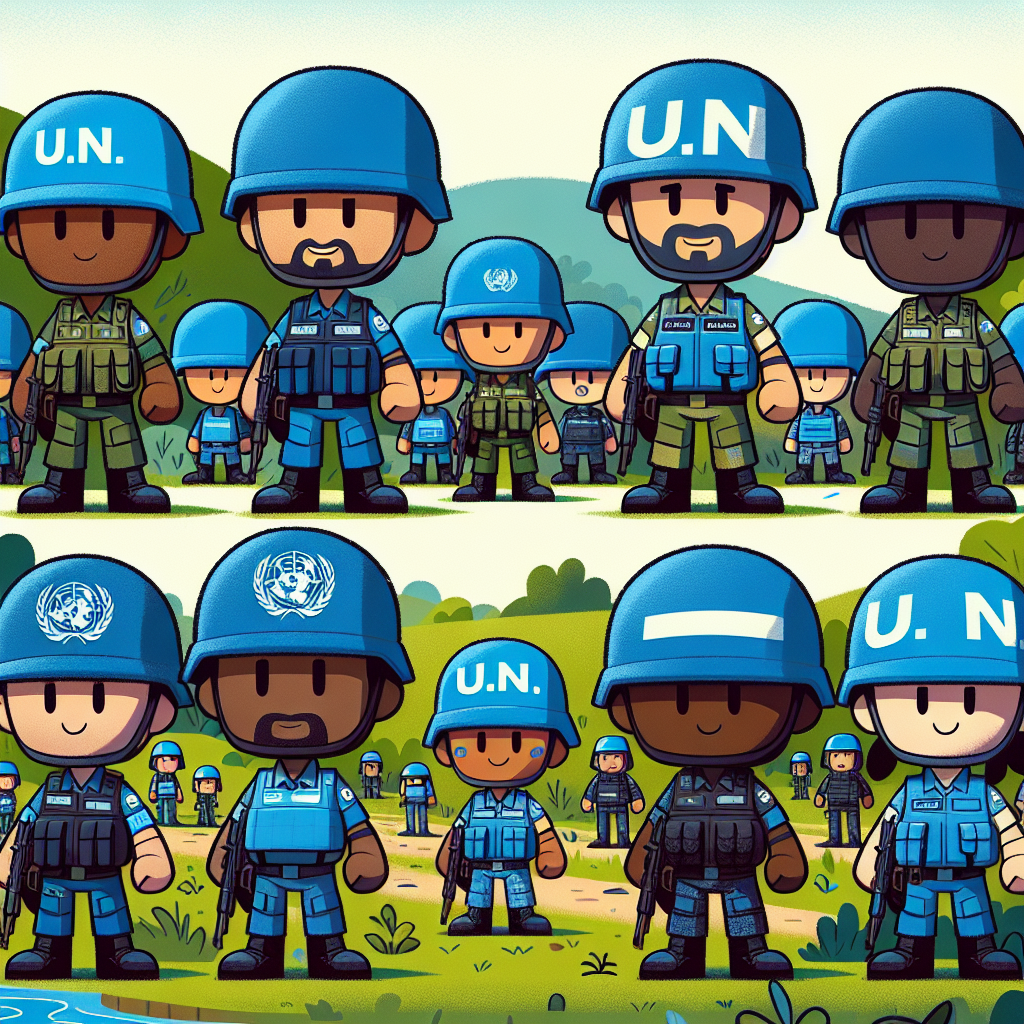UN chief condemns attacks against peacekeepers in Lebanon
According to the UN Interim Force in Lebanon (UNIFIL), two peacekeepers were injured on Friday after two explosions occurred close to an observation tower.

The UN Secretary-General on Friday condemned recent attacks against peacekeeping personnel and premises in southern Lebanon.
According to the UN Interim Force in Lebanon (UNIFIL), two peacekeepers were injured on Friday after two explosions occurred close to an observation tower.
This followed an incident on Thursday when an Israel Defense Forces (IDF) Merkava tank fired at an observation tower at UNIFIL’s headquarters in Naqoura, directly hitting it and injuring two additional personnel.
Established by the UN Security Council, UNIFIL is tasked with monitoring the cessation of hostilities following the war between Israel and Hezbollah, confirming the withdrawal of Israeli forces from southern Lebanon, and assisting the Lebanese government in restoring its authority in the area.
‘Blue helmets’ must be protected
Speaking at a press stakeout during the ASEAN Summit in Vientiane, the capital of Lao People’s Democratic Republic, Secretary-General António Guterres “condemned the fact that there was shooting against the UN premises, wounding two peacekeepers, which is a violation of international humanitarian law.”
“Peacekeepers must be protected by all parties of the conflict, and what has happened is obviously condemnable.”
He also expressed alarm over the escalating violence in Lebanon.
“What we are witnessing in Lebanon is a massive operation which strikes, heavy bombardments, obviously also with bombardments from the Hezbollah side, but that are causing dramatic number of civilians being killed,” he said.
Reports indicate that more than 2,000 people have been killed, and over one million have been displaced.
“We see an enormous tragedy in Lebanon, and we must do everything to avoid an all-out war In Lebanon,” Mr. Guterres added.
Peacekeepers remain at their posts
Despite the challenging conditions, UNIFIL peacekeepers continue their operations.
According to the Mission, several security walls at the UN position 1-31, near the Blue Line in Labbouneh, collapsed when an IDF vehicle hit the perimeter and IDF tanks moved close to the UN post.
Set by the UN and stretching for 120 kilometres along Lebanon’s southern frontier, the Blue Line is a “line of withdrawal”. Its practical purpose is to confirm the withdrawal of Israeli forces from the south of Lebanon. Several of UNIFIL’s positions are located on or near it.
A UNIFIL Quick Reaction Force was dispatched to assist and reinforce the position, with peacekeepers remaining on-site.
“These incidents put again UN peacekeepers, who are serving in south Lebanon at the request of the Security Council, at very serious risks,” UNIFIL stated on social media platform X.
“The safety and security of UN personnel and property must be guaranteed and that the inviolability of UN premises must be respected at all times.”
Any deliberate attack on peacekeepers is a grave violation of international humanitarian law and UN Security Council Resolution 1701, which mandates UNIFIL’s presence in the region, it added.
Situation worsening for civilians
In Geneva, the UN human rights office, OHCHR, called for an end to the “killing, destruction [and] bellicose posturing” by those in power, adding that the situation for civilians on the ground “in Lebanon, Gaza, Israel and Syria is getting worse by the day”.
On Thursday, airstrikes – without warning – targeted densely populated areas in Beirut’s central district, marking the third major attack on the city since late September, according to the UN Office for the Coordination of Humanitarian Affairs (OCHA).
Twenty-two people were killed, and hundreds injured, according to Lebanese authorities.
OHCHR spokesperson Ravina Shamdasani described how the densely populated capital of Beirut “is increasingly being hit by Israeli airstrikes” which have left more than 2,100 dead over the last year, according to the Lebanese authorities.
The development comes as Hezbollah and other armed groups “continue to fire rockets into Israel, resulting in the first civilian fatalities in the north since the most recent escalation of hostilities between Israel and Lebanon last month”, the OHCHR spokesperson noted.
Healthcare centres and emergency workers have not been spared from the intensifying Israeli strikes, with 96 primary health care centres and clinics closed by 5 October, according to the Lebanese authorities.
“We’ve had several reports also of airstrikes, targeting other medical centres and of paramedics as well as firefighters, being killed,” Ms. Shamdasani said.
Since 30 September, 49 health workers have been killed in nine confirmed attacks, according to the UN World Health Organization (WHO).
Humanitarian response
UN agencies are ramping up efforts to respond to the escalating humanitarian crisis.
The UN World Food Programme (WFP) and the UN Children’s Fund (UNICEF) dispatched a humanitarian convoy from Beirut to the village of Rmaych, where 6,000 people are sheltering.
Together with partners, the agencies have distributed over one million meals and more than 143,000 ready-to-eat kits to at least 440 designated shelters.
These agencies continue to provide vital protection, psychosocial support, nutrition, health, and water, sanitation, and hygiene services.
WHO has also delivered medical supplies to treat 650 trauma patients in six major Beirut hospitals, as assessments continue to evaluate the needs of displaced people outside formal shelters.
With nearly three-quarters of the 1,000 designated shelters at full capacity, the humanitarian needs are only increasing, particularly as winter approaches.
Visit UN News for more.
- READ MORE ON:
- Lebanon










